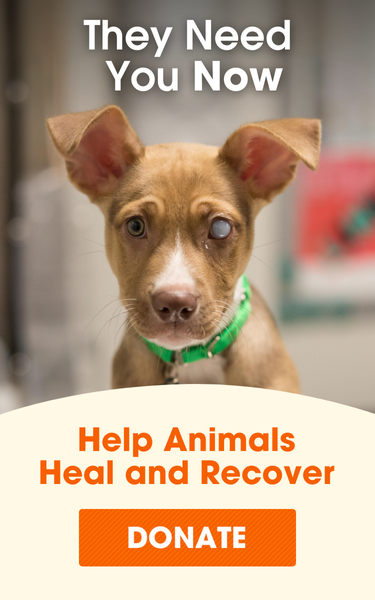
Helping a Heartworm-Positive Pet Get Healthy

Liberty City, Miami resident Maria S. often encounters stray animals in her neighborhood. Two years ago, when she came across a sweet two-year-old mixed-breed dog, Maria took her in and named her Lara.
“She was always looking for food,” recalls Marie. “And she came every day at the same time to eat.”
Maria, her husband and their son live near the ASPCA Community Veterinary Clinic (CVC), where Marie took Lara for spay surgery on January 26, 2022. ASPCA clinic staff also tested Lara for heartworm disease, which is spread by mosquitos and is common in warm states like Florida.
Sadly, Lara tested positive.
Maria couldn’t afford heartworm treatment—which can cost upwards of $1,000 and take many months—but was relieved to hear the ASPCA would cover the cost, as the clinic does as part of its service to financially-challenged pet owners.
“I love animals, but don’t have much money to care for them,” says Marie. “Still, I wanted to do the right thing.”
Lara’s Treatment
Our staff began Lara’s heartworm treatment the day she was spayed, according to Jose Lopez, Medical Staff Manager. They administered heartworm preventive and antibiotic medication for the first 60 days and then two consecutive injections.
Maria did her part by restricting Lara’s exercise.
“The drugs used to treat heartworms contain an arsenic-based compound that kills the adult worms,” explains Jose. “Dogs have to restrict exercise and movement during the course of treatment so their bodies can absorb the dead worms without complications.”

Lara’s visits over the course of her treatment enabled her to meet the entire CVC staff and veterinarians, including Dr. Magdalena Rodriguez and Dr. Rachael Krieger. They all agreed Lara was a very sweet patient.
“Maria was so grateful we could help Lara,” says Dr. Rodriguez. “And Lara was just as sweet and appreciative as Maria. It was a pleasure to treat her.”
Helping Pets Like Lara
With warm temperatures contributing to the likelihood of heartworm infection, there is a constant need for heartworm services in underserved areas like Liberty City.
Since opening three years ago, the CVC in Miami has treated 157 dogs for heartworm disease, with 78 treated in 2022. In 2023, 17 dogs have received treatment as of February 9.
Services provided by the ASPCA in Miami include preventive and basic pet care, spay/neuter surgery, and treatment for other ailments. Lara is one of 11,682 pets—4,061 cats and 7,621 dogs—who have received at least one of those services. Fifty-four percent of clients have made multiple visits to the Center, some with more than one pet.

Now home and heartworm-free, Lara enjoys playing with her friend Chimichurri, another dog Maria rescued from the streets.
“When you do something with love, you receive something back,” she says. “And Lara always gives back.”
